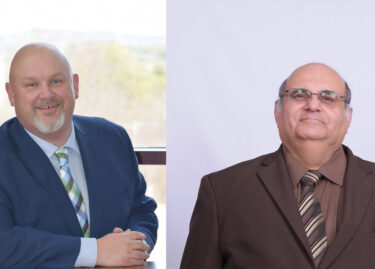Program allows professionals to teach in critical shortage areas while earning credentials
Berlin, NH – Robin Scott, a long-time educator and professor of education at White Mountains Community College (WMCC), recognized a problem underlying today’s need for teachers in critical shortage areas. She saw that while individuals with background and skills in high-need teaching fields did have a pathway to teach, New Hampshire lacked a well-structured, focused and streamlined way to help them gain the necessary training to become certified and credentialed.
Credentialing within alternative teaching certification pathways requires individuals to craft a plan and complete the core competency requirements mandated by the New Hampshire Department of Education (NH DOE). Once they begin teaching, they must complete this process in three years to become fully credentialed.
“I knew many people who were pursuing alternative certificates and were challenged by the lengthy and rigorous process associated with it,” said Scott. “After hearing from superintendents who had key needs for teachers – especially in the North Country – I realized we could help these individuals get through the process by creating a structured program to fully address this specific set of competencies in pursuing teacher certification.”
Scott, who taught in public schools for 23 years before joining WMCC, worked with the NH DOE to develop a new and more structured pathway now available as the WMCC New Hampshire Professional Education Competencies Certificate. This program enables individuals to meet the competency requirements for alternative teacher certification in a more focused and expeditious way.
Scott collaborated with the NH DOE to develop the curriculum that individuals can work into their three-year plan to gain certification while simultaneously teaching and filling a critical need. The program recently received approval from the NH DOE, and WMCC is now enrolling students for classes in the fall of 2019. It includes six courses that are offered in the late afternoon to enable individuals to teach during the day and then come to class. It is the first program of its kind in New Hampshire, in a model that could be replicated at other community colleges in New Hampshire depending on need and demand in other regions of the state.
“We heard from many superintendents in the North Country having trouble finding teachers for certain subjects such as the sciences, math and world languages. Developing a structured process to help people with background in these fields to work towards a teacher certification made sense. We are so pleased to be able to offer this certificate that gets individuals on this pathway while they are teaching and filling a critical need, and appreciate the efforts by NH DOE to make this possible,” said Scott.
The process begins by identifying areas of critical need as determined by the NH DOE. Individuals with professional history in those areas and who possess a bachelor’s degree with relevant coursework can move forward to develop their alternative certificate plan. WMCC’s program focuses specifically on helping students address the required competencies for teacher certification in a structured timeframe that aligns with the NH DOE’s three-year time limit.
To learn more about alternative teacher credentialing at WMCC contact, Robin Scott, professor of education at [email protected] or 603-342-3016.
About WMCC
White Mountains Community College (WMCC) is located in Berlin, New Hampshire with satellite campuses in Littleton and North Conway, and is one of seven colleges in the Community College System of New Hampshire. WMCC offers Associate Degree and Certificate programs, plus training options, preparing students for 21st century job opportunities as well as transfer pathways to four year colleges and universities. WMCC is fully accredited by the New England Association of Schools and Colleges. Our courses are the most affordable in New Hampshire and our Littleton Academic Center makes us accessible to all students in the North Country Region. Courses are available day, evening and online. WMCC courses transfer to four-year colleges and universities in New Hampshire and across the country. The seven community colleges in the system are committed to working with businesses throughout the state to train and retain employees to develop a robust workforce across all sectors and embraces the “65 by 25 Initiative,” which calls for 65% of NH citizens to have some form of postsecondary education by 2025 to meet future workforce demands.



